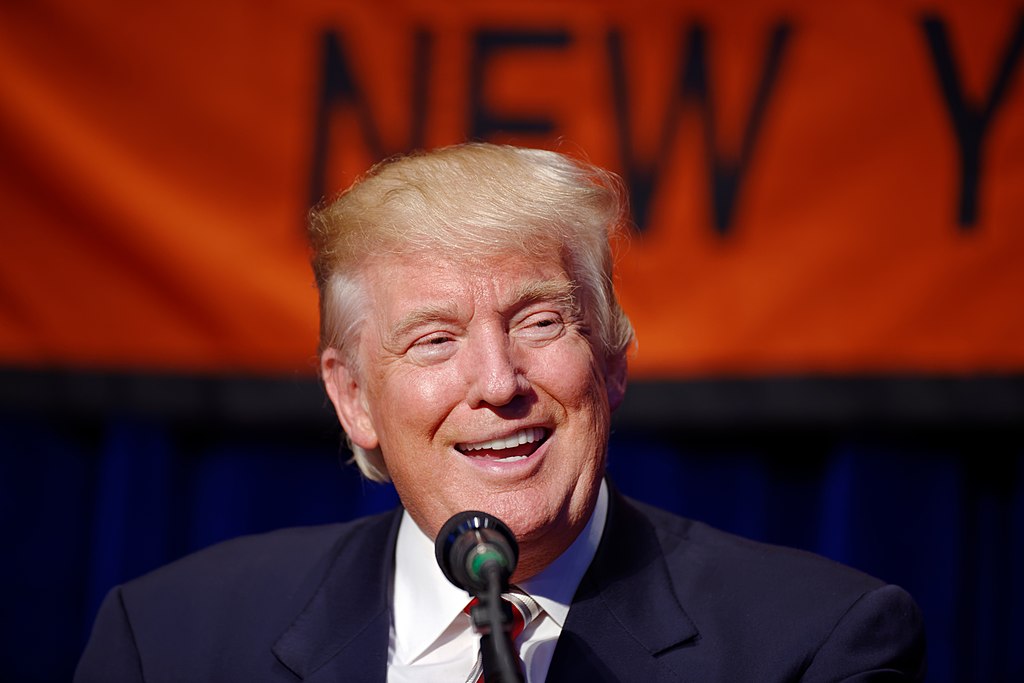In a bold economic pledge, Donald Trump has vowed to impose a 100% tariff on any country that abandons the U.S. dollar as its primary currency in international trade, a move that could significantly escalate global trade tensions if implemented. The former president’s proposal, made during a recent campaign rally, is part of his broader strategy to protect the U.S. economy and assert American dominance in global financial markets as he ramps up his 2024 presidential campaign.
Trump’s vow comes at a time when several nations have expressed interest in reducing their reliance on the U.S. dollar in favor of other currencies, such as the Chinese yuan or the euro. Countries like China and Russia have taken steps to establish alternative payment systems and shift trade agreements away from the dollar in recent years, leading to growing concern among U.S. policymakers about the long-term stability of the dollar’s role as the world’s reserve currency.
Trump’s proposal to enact a 100% tariff on such countries represents an aggressive stance that would likely disrupt global trade relationships and further complicate diplomatic ties. While intended to safeguard U.S. economic interests, the policy has already drawn criticism from economists and international trade experts, who warn that it could lead to retaliatory measures and harm American businesses that rely on global supply chains.
The U.S. dollar’s status as the world’s reserve currency has long been a cornerstone of American economic power, allowing the U.S. to maintain lower interest rates and a dominant position in international finance. However, recent moves by countries like Brazil, India, and South Africa to explore alternatives to the dollar have sparked concerns about potential shifts in the global financial landscape.
Trump’s proposed tariff aims to discourage such moves, leveraging the U.S. market’s size and economic influence to punish countries that challenge the dollar’s supremacy. The former president’s message is clear: any nation that seeks to distance itself from the U.S. dollar will face significant economic consequences if he returns to the White House.
Critics of Trump’s approach argue that imposing blanket tariffs could backfire, leading to increased costs for American consumers and businesses. They point to the impact of Trump’s previous tariffs on China during his first term, which contributed to rising prices on goods ranging from electronics to agricultural products. Additionally, some warn that isolating the U.S. from key trading partners could weaken its position in global markets, particularly as other countries look to strengthen regional economic alliances.
Despite these concerns, Trump’s supporters view the tariff proposal as a necessary step to protect American interests in an increasingly competitive global economy. They argue that maintaining the U.S. dollar’s dominance is critical to national security and that strong measures are required to deter foreign nations from undermining its position.
As the 2024 election approaches, Trump’s stance on economic protectionism is expected to be a central theme of his campaign. Whether his proposed 100% tariff will resonate with voters or raise fears of trade wars and global economic instability remains to be seen.



 U.S.-Iran Nuclear Talks Show Progress but No Breakthrough Amid Rising Military Tensions
U.S.-Iran Nuclear Talks Show Progress but No Breakthrough Amid Rising Military Tensions  ICE Hiring Surge Raises Vetting Concerns Amid Rapid Expansion
ICE Hiring Surge Raises Vetting Concerns Amid Rapid Expansion  Trump Floats Ted Cruz for Future U.S. Supreme Court Nomination
Trump Floats Ted Cruz for Future U.S. Supreme Court Nomination  Australian PM Calls Alleged Western Australia Terror Plot “Deeply Shocking” After Arrest
Australian PM Calls Alleged Western Australia Terror Plot “Deeply Shocking” After Arrest  Germany and China Reaffirm Open Trade and Strategic Partnership in Landmark Beijing Visit
Germany and China Reaffirm Open Trade and Strategic Partnership in Landmark Beijing Visit  Iran Supreme Leader Ayatollah Ali Khamenei Killed in Israeli, U.S. Strikes: Reuters
Iran Supreme Leader Ayatollah Ali Khamenei Killed in Israeli, U.S. Strikes: Reuters  Argentina Senate Approves Bill to Lower Age of Criminal Responsibility to 14
Argentina Senate Approves Bill to Lower Age of Criminal Responsibility to 14  Trump to Address Nation as U.S. Launches Strikes in Iran, Axios Reports
Trump to Address Nation as U.S. Launches Strikes in Iran, Axios Reports  Trump Media Weighs Truth Social Spin-Off Amid $6B Fusion Energy Pivot
Trump Media Weighs Truth Social Spin-Off Amid $6B Fusion Energy Pivot  Venezuela Oil Exports to Reach $2 Billion Under U.S.-Led Supply Agreement
Venezuela Oil Exports to Reach $2 Billion Under U.S.-Led Supply Agreement  Trump Orders Federal Agencies to Halt Use of Anthropic AI Technology
Trump Orders Federal Agencies to Halt Use of Anthropic AI Technology  Russia Signals Openness to U.S. Security Guarantees for Ukraine at Geneva Peace Talks
Russia Signals Openness to U.S. Security Guarantees for Ukraine at Geneva Peace Talks  Federal Judge Blocks Virginia Social Media Age Verification Law Over First Amendment Concerns
Federal Judge Blocks Virginia Social Media Age Verification Law Over First Amendment Concerns  Netanyahu Suggests Iran’s Supreme Leader Khamenei May Have Been Killed in Israeli-U.S. Strikes
Netanyahu Suggests Iran’s Supreme Leader Khamenei May Have Been Killed in Israeli-U.S. Strikes  Dominican Republic Unveils Massive Rare Earth Deposits to Boost High-Tech and Energy Sectors
Dominican Republic Unveils Massive Rare Earth Deposits to Boost High-Tech and Energy Sectors  U.S. Plans 4,500 Monthly Refugee Admissions for White South Africans Amid Policy Debate
U.S. Plans 4,500 Monthly Refugee Admissions for White South Africans Amid Policy Debate  Macron Urges Emergency UN Security Council Meeting as US-Israel Strikes on Iran Escalate Middle East Tensions
Macron Urges Emergency UN Security Council Meeting as US-Israel Strikes on Iran Escalate Middle East Tensions 































